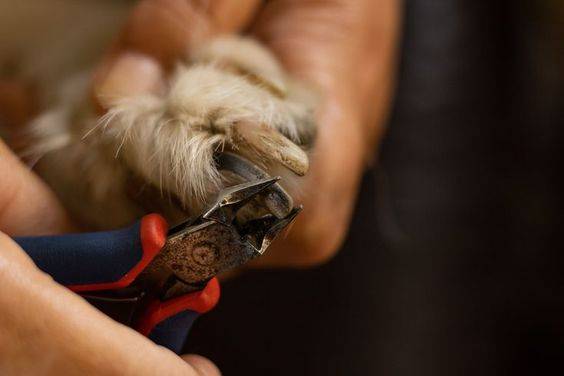Traveling with pets can be a complex process, especially when it involves crossing state or international borders. One crucial requirement for a pet health certificate for travel. This document is essential for ensuring your pet’s health and safety, as well as complying with various regulations. In this comprehensive guide, we’ll explore what a pet health certificate for travel is, why it’s important, and how to obtain one. We’ll also cover specific requirements for different destinations and provide tips to make your travel experience smooth and stress-free.
What is a Pet Health Certificate?
A pet health certificate, also known as a Certificate of Veterinary Inspection (CVI), is an official document issued by a licensed veterinarian. This certificate verifies that your pet is healthy and free from contagious diseases, and it often includes details such as vaccination records and general health status. Pet health certificate for travel are required by airlines, interstate travel authorities, and international travel agencies to ensure the safety of all animals and humans involved in the travel process.
Why Do You Need a Pet Health Certificate for travel?
Ensuring Pet Safety
The primary purpose of a pet health certificate is to protect the health of your pet and other animals. Travel can be stressful and expose pets to various health risks. A pet health certificate to travel ensures that your pet is fit to travel and minimizes the risk of spreading infectious diseases.
Legal Requirements
Many countries, states, and airlines have stringent regulations regarding pet travel. Without a valid health certificate, you may face legal issues, including fines or denied entry for your pet. Some destinations have specific vaccination requirements, quarantine periods, or additional tests that must be documented in the health certificate.
Peace of Mind
Having a pet health certificate for travel provides peace of mind. Knowing that your pet has been examined by a veterinarian and deemed healthy for travel can reduce anxiety and help you focus on enjoying your trip.
How to Obtain a Pet Health Certificate
Step 1: Schedule a Veterinary Appointment
The first step in obtaining a pet health certificate for travel is to schedule an appointment with a licensed veterinarian. It’s crucial to choose a vet who is familiar with the health certificate requirements for your destination.
Step 2: Pre-Visit Preparations
Before your veterinary visit, gather all necessary documents, including your pet’s vaccination records, identification (microchip or tags), and any previous health certificates. Research the specific health requirements for your destination, as these can vary significantly.
Step 3: Veterinary Examination
During the examination, the veterinarian will conduct a thorough health check of your pet. This includes a physical examination, reviewing vaccination records, and possibly administering additional vaccinations or tests as required by your destination.
Step 4: Issuance of the Health Certificate
If your pet is deemed healthy and meets all requirements, the veterinarian will issue the pet health certificate for travel.
- Pet’s name, breed, age, and identification number (microchip)
- Owner’s name and contact information
- Date of examination and travel
- List of vaccinations and dates administered
- Results of any required tests
- Veterinarian’s signature and license number
Step 5: Verify Specific Requirements
Ensure that the health certificate meets all specific requirements of your destination. Some places may require additional endorsements from state or federal authorities, so double-check the regulations to avoid any last-minute surprises.
Destination-Specific Requirements
Domestic Travel Within the United States
For domestic travel, most states require a pet health certificate for travel issued within 10 days of travel. Airlines also have their own policies, so check with your carrier in advance. Common requirements include:
- Proof of rabies vaccination
- General health examination
- Microchip information (if applicable)
International Travel
International travel with pets is more complex and often requires additional documentation. Some key considerations include:
European Union (EU)
Traveling to the EU with a pet requires an EU pet passport, which includes a health certificate. The pet must be microchipped and vaccinated against rabies at least 21 days before travel. In some cases, a rabies titer test may be required.
Australia and New Zealand
These countries have strict quarantine laws. Pets must have an import permit, microchip, rabies vaccination, and a rabies titer test. Additionally, a period of quarantine upon arrival is mandatory.
Asia
Requirements vary widely across Asian countries. Common requirements include rabies vaccination, microchip, and additional vaccinations or blood tests. Some countries, like Japan, require an import permit and quarantine.
Airline-Specific Requirements
Airlines have specific requirements for pet travel, which can include crate dimensions, types of allowable carriers, and additional documentation. Always check with your airline well in advance to ensure compliance.
Tips for Smooth Travel with Your Pet
Plan Ahead
Start planning at least six months before your travel date, especially for international trips. This allows ample time to meet all health and documentation requirements.
Keep Records Handy
Maintain a file of all pet-related documents, including vaccination records, health certificates, and identification. This ensures you have everything readily available when needed.
Choose Pet-Friendly Accommodations
Research and book pet-friendly accommodations in advance. Many hotels and rental properties have specific policies regarding pets, and knowing these ahead of time can prevent any issues upon arrival.
Pack Essentials
Pack a travel kit for your pet, including food, water, medications, a first-aid kit, and comfort items like toys or blankets. Familiar items can help reduce your pet’s anxiety during travel.
Monitor Your Pet’s Health
Keep a close eye on your pet’s health before, during, and after travel. Look for signs of stress or illness and consult a veterinarian if needed.
Inference
Traveling with a pet requires careful preparation, and obtaining a pet health certificate for travel is a crucial part of the process. By understanding the requirements and planning ahead, you can ensure a safe and enjoyable journey for both you and your pet. Whether traveling domestically or internationally, following these guidelines will help you navigate the complexities of pet travel and comply with all necessary regulations.







